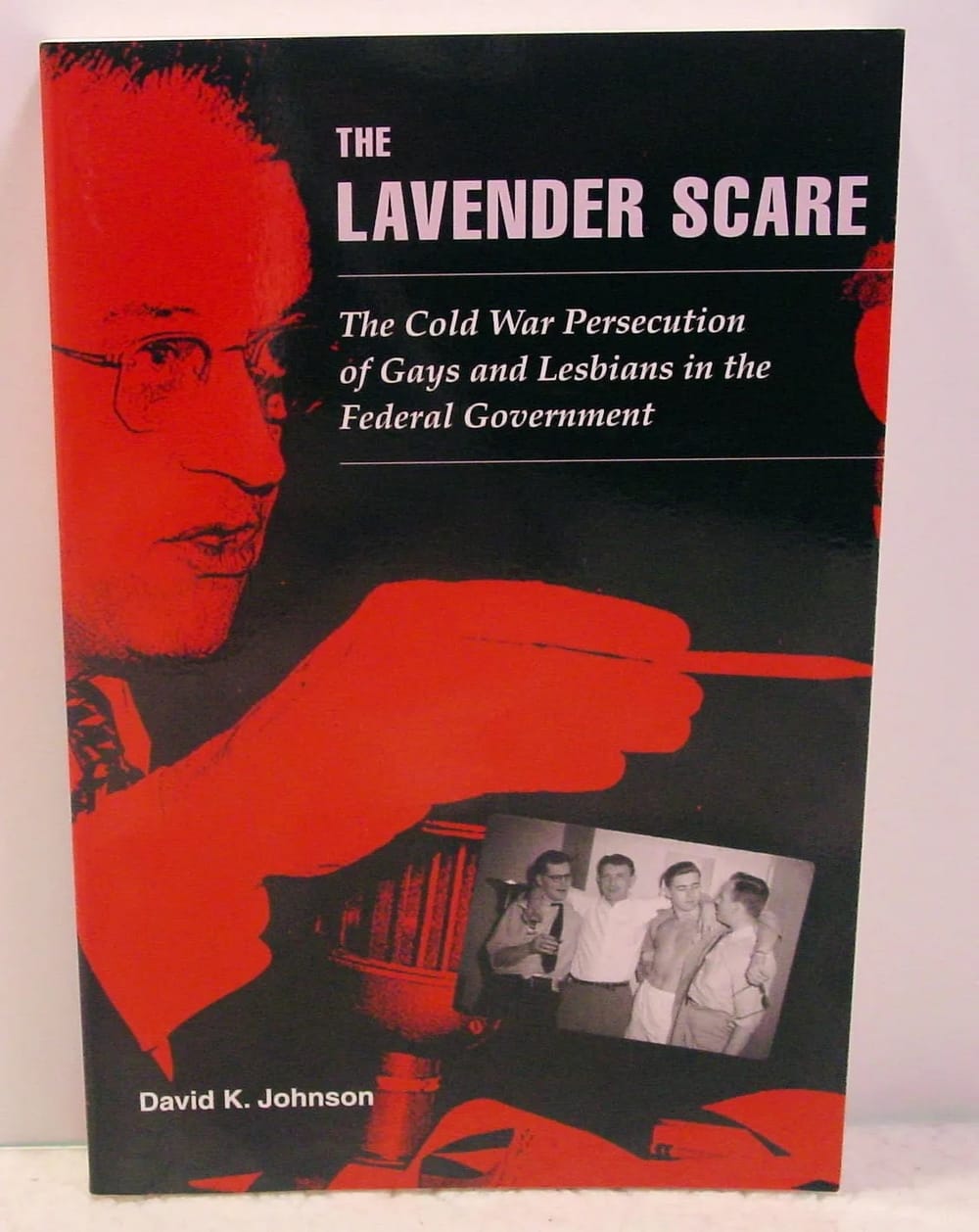To appreciate the New Lavender Scare, it is essential to understand the original Lavender Scare, which began in the late 1940s and continues to have an impact to this day. You’ll recognize some of the names. Senator Joe McCarthy, who led the second Red Scare, and Donald Trump’s favorite lawyer, Roy Cohn, helped lead the charge. Maybe that’s where Donald got his homophobia.
“The so-called ‘Red Scare’ has been the main focus of most historians of that period of time," said Senator Alan K. Simpson. "A lesser-known element and one that harmed far more people was the witch-hunt McCarthy and others conducted against homosexuals.”
At its best, the federal government led the fight to protect the most vulnerable citizens. The federal government eventually desegregated the armed forces and its own workforce for Black people with Harry Truman’s 1948 executive order. They apparently made room for Black people by eradicating gay men and lesbians to a lesser degree. Senator Everett Dirksen coined the term “lavender lads.” The same term was used by Confidential magazine, a periodical known for gossiping about the sexuality of politicians and prominent Hollywood stars.
The State Department was once unconcerned about gay people in its ranks. The Lavender Scare focused on the possibility of blackmail, which would make state secrets unsafe in the possession of closeted gay people. Homosexuals were increasingly viewed as morally unfit and categorized along with the criminally insane. Between 1947 and 1950, over 1700 applicants for federal jobs were denied the positions due to allegations of homosexuality.
In February 1950, Undersecretary of State John Peurifoy said that the State Department had allowed 91 homosexuals to resign. Only two of these were women. Following this, the administration of President Harry Truman was accused of not taking the “threat” of homosexuality seriously enough. In June 1950, an investigation by the Senate began into the government’s employment of homosexuals. Federal job losses due to allegations of homosexuality increased significantly, rising from approximately 5 to 60 per month. On April 19, 1950, the Republican National Chairman, Guy George Gabrielson, said that “sexual perverts who have infiltrated our Government in recent years” were “perhaps as dangerous as the actual Communists”. McCarthy hired Cohn as chief counsel of his Congressional subcommittee. Together, McCarthy and Cohn — with the enthusiastic support of the head of the FBI, J. Edgar Hoover — were responsible for the firing of scores of gay men and women from government employment, and strong-armed many opponents into silence using rumors of their homosexuality.
McCarthy often used accusations of homosexuality as a smear tactic in his anti-communist crusade, combining the Second Red Scare with the Lavender Scare. On one occasion, he went so far as to announce to reporters, “If you want to be against McCarthy, boys, you’ve got to be either a Communist or a cocksucker.”
McCarthy’s run eventually came to a close. Thirty-six days of televised Senate hearings in 1954 were highlighted by Army lawyer Joseph Welch saying:
“Have you no sense of decency, sir, at long last? Have you left no sense of decency?”
Also in 1954, journalist Edward R. Morrow produced an exposé of McCarthy on his news program See It Now. The public turned against McCarthy, and the Senate censured him.
Undoing the Lavender Scare took much longer. While the 1956 Cole v. Young ruling severely weakened the ability to fire people from the federal government for discriminatory reasons, the movement that was born from the Lavender Scare lived on. Executive Order 10450 continued to bar gays from entering the military until 1995. That morphed into “Don’t ask, don’t tell,” which in retrospect isn’t much better.
Not that any recent administration deserves praise for their treatment of the LGBTQ community, the current Trump administration brings back memories of the Lavender Scare in its heyday. While the focus has been mainly on transgender individuals. Under the guise of eliminating DEI, Trump has eliminated all support groups and demanded lists of LGBTQ groups, employees, and leaders. DOGE has been particularly proactive in seeking out the LGBTQ community, as has Pete Hegseth in the Department of Defense.
DOGE specifically canceled government contracts in any way associated with LGBTQ. Agriculture Secretary Brooke Rollins confirmed that a $379,000 grant from the U.S. Department of Agriculture (USDA) had been canceled. The grant, which supported a San Francisco Bay Area program educating queer, transgender, and BIPOC (Black, Indigenous, and People of Color) urban farmers and consumers about food justice, was deemed outside the agency’s core mission.
“By stopping this wasteful spending here at USDA, we are ending identity politics and refocusing our agency on its core mission of supporting American farming, ranching, and forestry,” said Brooke Rollins.
“And what you’re seeing is a military right now that is more interested in social engineering led by this president than they are in war fighting. So as a result, through ‘don’t ask, don’t tell’ and women in the military and these standards, they’re going to inevitably start to erode standards because they want that one female special operator, that one female Green Beret, that one female Army Ranger, that one female Navy SEAL.
So they can put them on a recruiting poster and feel good about themselves and has nothing to do with national security. And these war fighters are realizing they’re just going to start ticking away at the standards until they get one.” — Pete Hegseth
Trump’s war on the LGBTQ is getting little scrutiny, given the attention being paid to his immigration policy and interventionist military strategy. The Second Lavender Scare is well underway; the question is, does America have the collective will to do anything about it?
This post originally appeared on Medium and is edited and republished with author's permission. Read more of William Spivey's work on Medium. And if you dig his words, buy the man a coffee.
